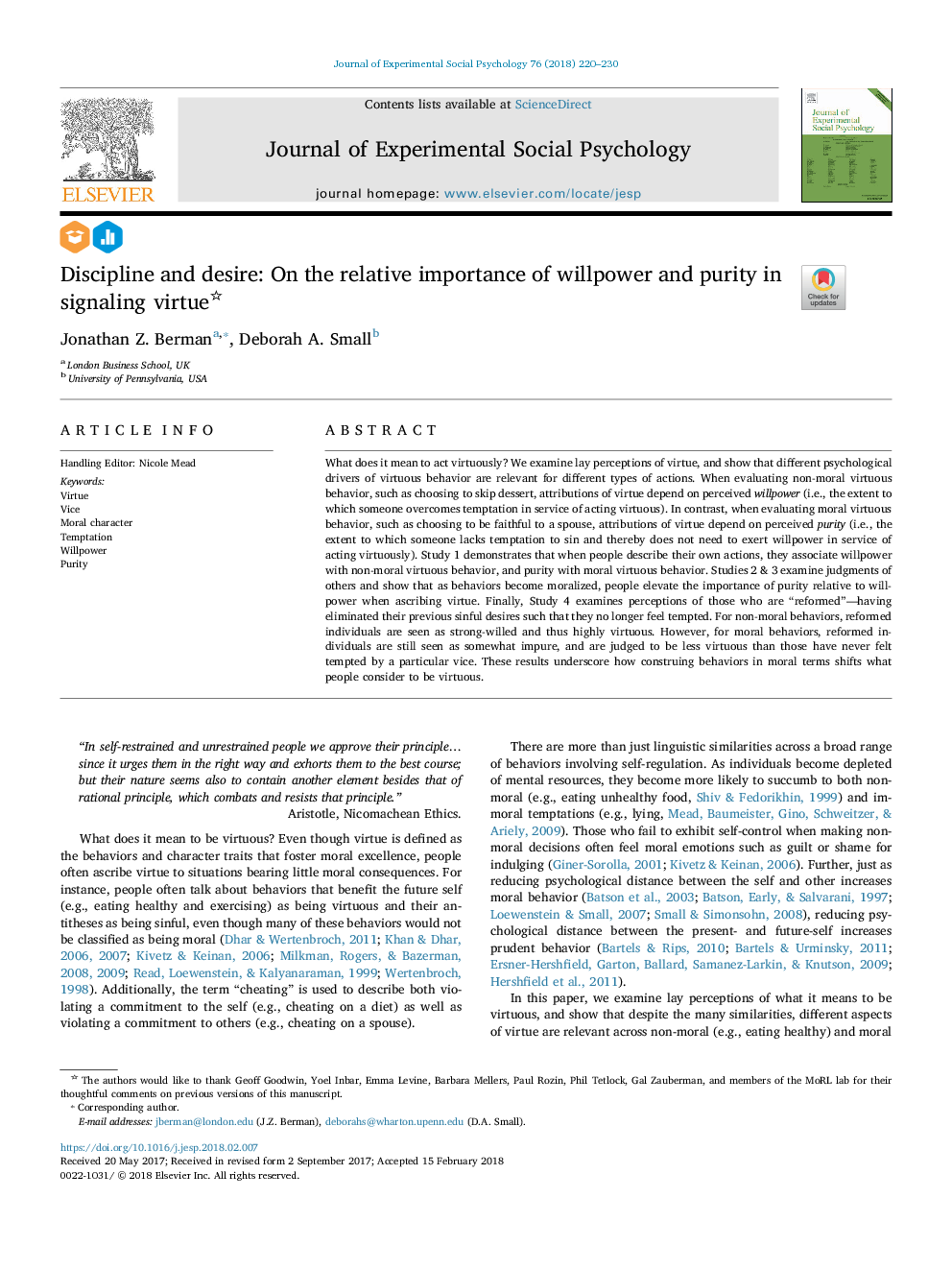ترجمه فارسی عنوان مقاله
نظم و تمایل: در مورد اهمیت نسبی اراده و خلوص در فضیلت سیگنال
عنوان انگلیسی
Discipline and desire: On the relative importance of willpower and purity in signaling virtue
| کد مقاله | سال انتشار | تعداد صفحات مقاله انگلیسی |
|---|---|---|
| 88268 | 2018 | 11 صفحه PDF |
منبع

Publisher : Elsevier - Science Direct (الزویر - ساینس دایرکت)
Journal : Journal of Experimental Social Psychology, Volume 76, May 2018, Pages 220-230
ترجمه کلمات کلیدی
تقوا، معاون، شخصیت اخلاقی، وسوسه قدرت حقیقی، خلوص،
کلمات کلیدی انگلیسی
Virtue; Vice; Moral character; Temptation; Willpower; Purity;

